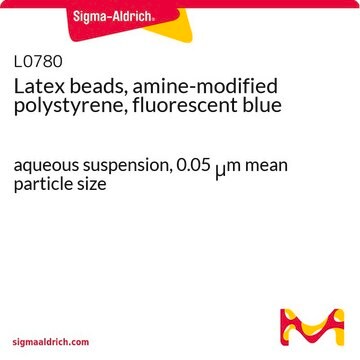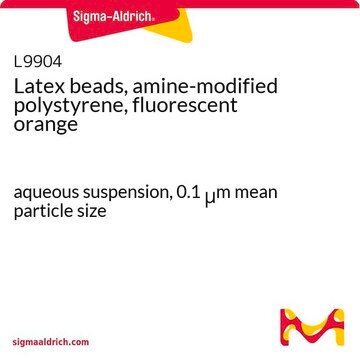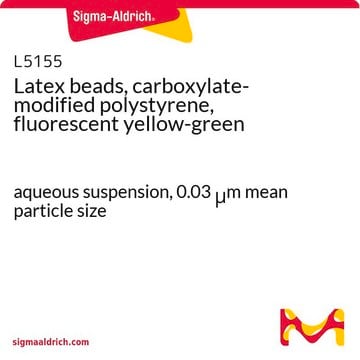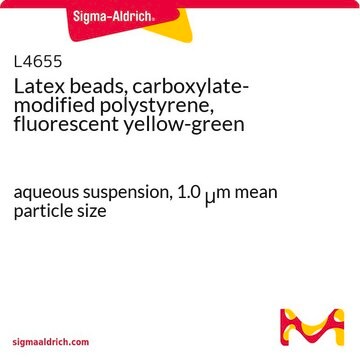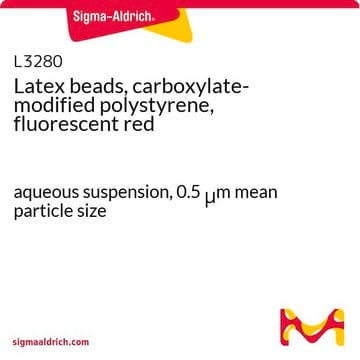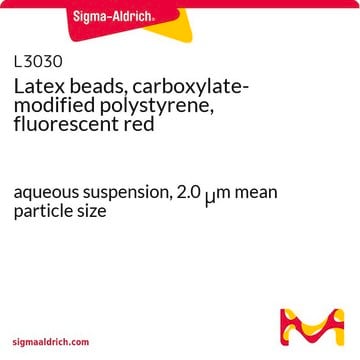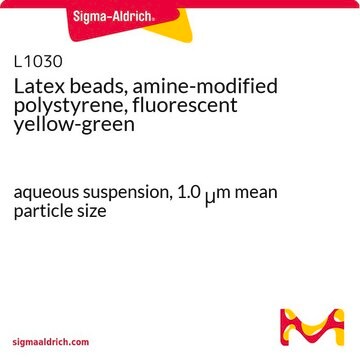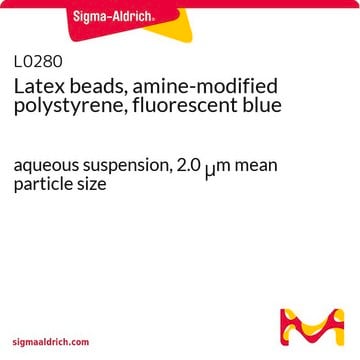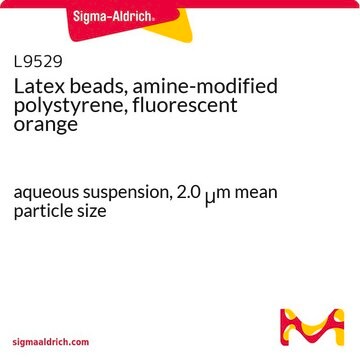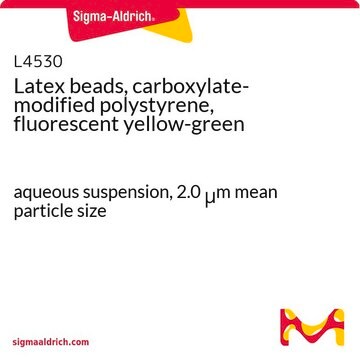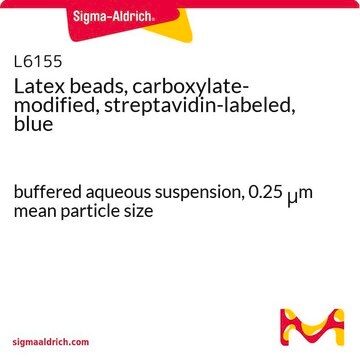L1403
Latex beads, sulfate-modified polystyrene, fluorescent orange
aqueous suspension, 0.5 μm mean particle size
Sign Into View Organizational & Contract Pricing
All Photos(1)
About This Item
Recommended Products
form
aqueous suspension
composition
Solids, 2.5%
mean particle size
0.5 μm
fluorescence
λex ~520 nm; λem ~540 nm
Looking for similar products? Visit Product Comparison Guide
Application
Sulfate-modified polystyrene latex beads have been used to develop an electrochemical nitrite nanosensor as well as in voltammetric studies. Sulfate-modified polystyrene latex beads have been used to explain the partitioning behavior for certain species of bacteria.
Storage Class Code
10 - Combustible liquids
WGK
WGK 2
Flash Point(F)
Not applicable
Flash Point(C)
Not applicable
Certificates of Analysis (COA)
Search for Certificates of Analysis (COA) by entering the products Lot/Batch Number. Lot and Batch Numbers can be found on a product’s label following the words ‘Lot’ or ‘Batch’.
Already Own This Product?
Find documentation for the products that you have recently purchased in the Document Library.
Customers Also Viewed
Hong Sun et al.
Biophysical chemistry, 110(3), 297-308 (2004-07-02)
A novel hemoglobin (Hb)-coated polystyrene (PS) latex bead film was deposited on pyrolytic graphite (PG) electrode surface. In the first step, positively charged Hb molecules in pH 5.0 buffers were adsorbed on the surface of negatively charged, 500 nm diameter
Eun-Young Seo et al.
Applied and environmental microbiology, 76(6), 1981-1991 (2010-01-26)
To assess interchangeability of estimates of bacterial abundance by different epifluorescence microscopy methods, total bacterial numbers (TBNs) determined by most widely accepted protocols were statistically compared. Bacteria in a set of distinctive samples were stained with acridine orange (AO), 4'-6-diamidino-2-phenylindole
Electrochemical nitrite nanosensor developed with amine- and sulphate-functionalised polystyrene latex beads self-assembled on polyaniline
Muchindu, M., et al.
Electrochimica Acta, 55, 4274-4280 (2010)
Effect of ionic strength and ionic species on partitioning behavior of hydrophobic and hydrophilic polystyrene latex beads in aqueous two-phase polymer systems
Tripp, B.C., et al.
Colloids and Surfaces, B: Biointerfaces, 6, 151-164 (1996)
Our team of scientists has experience in all areas of research including Life Science, Material Science, Chemical Synthesis, Chromatography, Analytical and many others.
Contact Technical Service